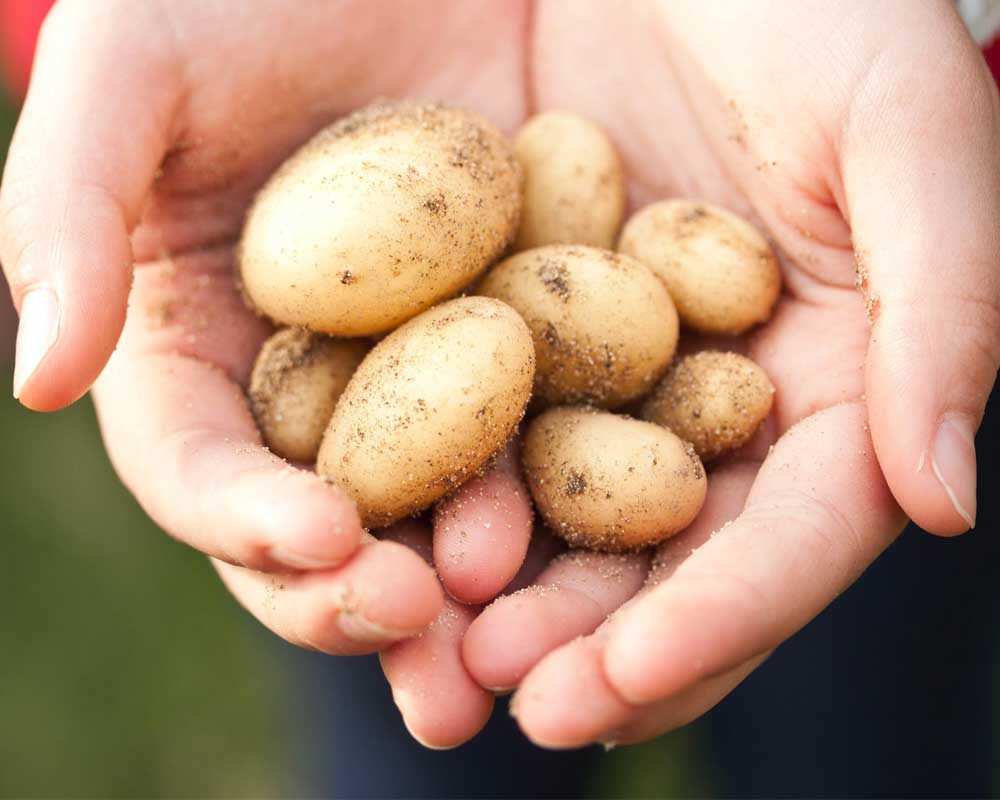
Potatoes and Diabetes: A Heartfelt Exploration of the Connection
Potatoes, those humble and versatile vegetables, have been a staple in many households for generations. Whether mashed, baked, or fried, they find their way onto our plates in various forms. However, for individuals dealing with diabetes, the relationship with potatoes can be a bit more complex. In this emotionally charged article, we will delve into the intricate connection between potatoe and diabetes, exploring the impact of these starchy delights on blood sugar levels and overall health.

The Love-Hate Relationship with Potatoes
Potatoes: A Beloved Comfort Food
Potatoes have always held a special place in our hearts. They are the ultimate comfort food, capable of soothing our souls on the toughest of days. From creamy mashed potatoe that evoke childhood memories to crispy french fries enjoyed during movie nights, potatoe have been our companions in joy and sorrow.
Diabetes: The Unwanted Guest
On the flip side, diabetes is an unwelcome guest that disrupts our lives. It forces us to be mindful of what we eat and how it affects our bodies. The concern arises when we ponder how potatoe, laden with carbohydrates, fit into this intricate equation.
Understanding the Impact
The Carb Conundrum
Carbohydrates are a diabetic’s conundrum. Potatoes are rich in carbs, and when consumed, they can cause a spike in blood sugar levels. This can be particularly troublesome for those with diabetes, as maintaining stable blood sugar levels is essential.
The Fiber Factor
However, it’s not all bad news. Potatoes also contain dietary fiber, which can help slow down the absorption of sugars and promote a feeling of fullness. This can aid in managing blood sugar levels and controlling appetite, making it easier for diabetics to make healthy food choices.
Cooking Methods Matter
The Roasting Redemption
The method of preparation matters significantly. Roasting potatoe, for instance, can help preserve their nutritional value and reduce their glycemic index. This means that roasted potatoes may have a milder impact on blood sugar compared to their fried counterparts.
Portion Control
Controlling portion sizes is crucial for diabetics. Smaller servings of potatoe, combined with other low-carb vegetables and lean proteins, can create a balanced and satisfying meal that doesn’t wreak havoc on blood sugar levels.
Emotional Impact
The Emotional Tug-of-War
For many, the emotional connection to food runs deep. Diabetics often find themselves torn between their love for potatoes and the need to manage their condition. It’s essential to acknowledge these emotions and find ways to strike a balance that nurtures both body and soul.
Support and Understanding
Family and friends play a vital role in supporting individuals with diabetes. Understanding the challenges they face in making food choices can lead to a more compassionate and inclusive dining experience.
Conclusion
In conclusion, the relationship between potatoe and diabetes is complex and laden with emotional and practical considerations. While potatoes can pose challenges for diabetics due to their carbohydrate content, they can still be enjoyed in moderation and prepared in ways that minimize their impact on blood sugar levels. It’s a delicate balance that requires mindfulness, support, and understanding.
FAQs
Q1: Can diabetics eat potatoes at all?
A1: Yes, diabetics can enjoy potatoe in moderation, preferably in small portions and prepared in a way that minimizes their impact on blood sugar levels.
Q2: Are sweet potatoes a better choice for diabetics?
A2: Sweet potatoe have a lower glycemic index than regular potatoes and can be a better choice for diabetics when consumed in moderation.
Q3: What are some healthy ways to prepare potatoes for diabetics?
A3: Roasting, boiling, or steaming potatoes with minimal added fats and sugars is a healthier option for diabetics compared to frying.
Q4: How does fiber in potatoes benefit diabetics?
A4: The dietary fiber in potatoe can help slow down the absorption of sugars, promoting better blood sugar control and a feeling of fullness.
Q5: Where can I find more information and support for managing diabetes?
A5: For more information and support, you can access valuable resources at
Read More
Does Pea-nut Butter Make You Gain Weight? Debunking the Nutty Myth
Bana-nas and Diab-ete: A Sweet Affair with a Healthy Twist
Pota-toes and Diab-etes: A Heartfelt Exploration of the Connection
The Sweet Solution: How Mangoes Can Impact Dia-betes
Unlocking the Potential of a Low-Carb Diet: A Lifeline for Dia-betics
How to Prevent Diabetes: Taking Charge of Your Health
A Vegan Diet for Dia-betes: A Compassionate Path to Health and Wellness
How Many Carbs Should You Eat If You Have Diabetes?
Diab-etes Diet: A Journey Towards Health and Freedom
Diabetes Snacks: Delicious Choices for a Healthy Lifestyle
Cinamon and Diab-etes: A Sweet Spice’s Impact on Blood Sugar
